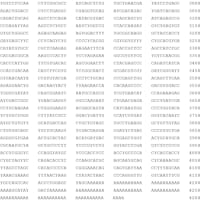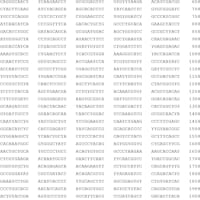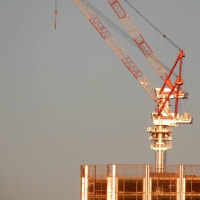米宇宙軍公式サイトによれは12月18日、米宇宙軍と日本の宇宙開発戦略推進事務局は日本の準天頂衛星システムに米国の光学センサー(Space Domain Awareness optical sensors)を搭載し共同運用する覚書に調印した。
空軍省宇宙ミサイルシステムセンター(Department of the Air Force’s Space and Missile Systems Center)は、スペースドメインアウェアネス光学センサーを開発しており、現在、三菱電機が製造中の準天頂衛星に搭載され、それぞれ2023年と2024年に種子島宇宙センターから打ち上げられる。
この覚書締結に先立つ8月27日、宇宙軍の作戦部長であるジョン・レイモンド宇宙軍大将(General John W. RAYMOND, Chief of Space Operations, the U.S. Space Force)が、安部首相を表敬訪問し、準天頂衛星へ米国の宇宙状況監視(SSA:Space Situational Awareness)センサーを搭載することに合意している。
この表敬には、西村明宏内閣官房副長官他、米国側はスコット・ペース米国家宇宙会議事務局長(Dr. Scott Pace, Executive Secretary, National Space Council)及びマーク・ヴァンドロフNSC国防政策・戦略担当上級部長(Mr. Mark Vandroff, Senior Director, Defense Policy and Strategy, National Security Council)らが同席。
日本は、現在4基体制の準天頂衛星を7基体制にして、GPS衛星に頼らずに自力で衛星測位を可能とする自立型日本版GPSにシステムアップする計画である。
準天頂衛星を所管しているのは、内閣府の宇宙戦略室。本来であればJAXAを所管する文部科学省が担任するのが筋だが、文科省は全く関心がない。防衛省・自衛隊はというとGPSがあるから準天頂衛星には関係したくないとの姿勢。
だが、米宇宙軍の監視センサーが準天頂衛星に搭載され、ロシアや中国のミサイル発射などの常時監視が可能となれば、今は仮に内閣府が所管している継子扱いの準天頂衛星は、防衛省・自衛隊が担任するのが最善ではないのか。
しかし今、宇宙戦略室に出向している防衛省の参事官は評判が悪い。
さて、準天頂衛星だが、既に1号機が寿命を迎えており、代替機が必要。しかし、準天頂衛星1号機を設計開発したJAXA担当者はすべて定年で退職しており、人材・ノウハウの適切な継承と育成が重要。
それと、準天頂衛星2号機は、二重化されているシステムの半分が機能不全に陥っているし、三菱電機の不手際で全国でのセンチメートルオーダーでの衛星測位が遅れている厳しい状況にある。
しかも、サイバー攻撃を受け続けており機密情報が漏れているし、優秀な技術者を定年になると単純に退職させるので、彼らの知識・ノウハウを狙って獲得している云々などなど由々しき問題ではある。
中国は、全地球測位システムを稼働させた3番目の国となった。(ロシアはGLONASSを再構築中)日本は、準天頂衛星が7機体制になれば、インドに次いで局地型の衛星測位システムの運用国となる。
According to the U.S. Space Force official website, on December 18, the U.S. Space Force and Japan's Space Development Strategy Promotion Secretariat will jointly operate Japan's quasi-zenith satellite system with US Space Domain Awareness optical sensors. Signed a memorandum of understanding.
The Department of the Air Force's Space and Missile Systems Center is developing a space domain awareness optical sensor, which will be installed on the quasi-zenith satellite currently being manufactured by Mitsubishi Electric in 2023, respectively. It will be launched from the Taneshima Space Center in 2024.
Prior to the conclusion of this memorandum, on August 27, General John W. RAYMOND, Chief of Space Operations, the US Space Force, the Chief of Space Operations, paid a courtesy call on Prime Minister Abe. It has been agreed that the US Space Situational Awareness (SSA) sensor will be installed on the zenith satellite.
This courtesy call was given to Akihiro Nishimura, Deputy Secretary-General of the Cabinet Secretariat, Dr. Scott Pace, Executive Secretary, National Space Council, and Mark Vandorf, Senior Director of Defense Policy and Strategy, NSC. (Mr. Mark Vandroff, Senior Director, Defense Policy and Strategy, National Security Council) and others were present.
Japan plans to upgrade the system from four quasi-zenith satellites to seven, and to upgrade to a self-sustaining Japanese version of GPS that enables satellite positioning on its own without relying on GPS satellites.
The Quasi-Zenith Satellite is in charge of the Space Strategy Office of the Cabinet Office. Normally, the Ministry of Education, Culture, Sports, Science and Technology, which has jurisdiction over JAXA, is in charge, but the Ministry of Education is not interested at all. The Ministry of Defense and the Self-Defense Forces are not interested in quasi-zenith satellites because they have GPS.
However, if the US Space Force's surveillance sensor is mounted on the quasi-zenith satellite and it becomes possible to constantly monitor missile launches in Russia and China, the quasi-zenith satellite treated as a stepchild under the jurisdiction of the Cabinet Office will be defended. Isn't it best for the Ministry of Defense and the Self-Defense Forces to take charge?
However, the Ministry of Defense counselor who is now seconded to the Space Strategy Office has a bad reputation.
By the way, although it is a quasi-zenith satellite, the first unit has already reached the end of its life, and an alternative unit is needed. However, all JAXA personnel who designed and developed the first quasi-zenith satellite have retired at the mandatory retirement age, and it is important to properly pass on and develop human resources and know-how.
In addition, half of the redundant system of Quasi-Zenith Satellite No. 2 is dysfunctional, and Mitsubishi Electric's inadequacy has delayed satellite positioning on the order of centimeters nationwide.
Moreover, confidential information is leaked due to continuous cyber attacks, and excellent engineers are simply retired when they reach retirement age, so there are serious problems such as acquiring their knowledge and know-how. Is.
China has become the third country to operate the Global Positioning System. (Russia is rebuilding GLONASS) If the number of quasi-zenith satellites becomes seven, Japan will become the operating country of the local satellite positioning system next to India.
空軍省宇宙ミサイルシステムセンター(Department of the Air Force’s Space and Missile Systems Center)は、スペースドメインアウェアネス光学センサーを開発しており、現在、三菱電機が製造中の準天頂衛星に搭載され、それぞれ2023年と2024年に種子島宇宙センターから打ち上げられる。
この覚書締結に先立つ8月27日、宇宙軍の作戦部長であるジョン・レイモンド宇宙軍大将(General John W. RAYMOND, Chief of Space Operations, the U.S. Space Force)が、安部首相を表敬訪問し、準天頂衛星へ米国の宇宙状況監視(SSA:Space Situational Awareness)センサーを搭載することに合意している。
この表敬には、西村明宏内閣官房副長官他、米国側はスコット・ペース米国家宇宙会議事務局長(Dr. Scott Pace, Executive Secretary, National Space Council)及びマーク・ヴァンドロフNSC国防政策・戦略担当上級部長(Mr. Mark Vandroff, Senior Director, Defense Policy and Strategy, National Security Council)らが同席。
日本は、現在4基体制の準天頂衛星を7基体制にして、GPS衛星に頼らずに自力で衛星測位を可能とする自立型日本版GPSにシステムアップする計画である。
準天頂衛星を所管しているのは、内閣府の宇宙戦略室。本来であればJAXAを所管する文部科学省が担任するのが筋だが、文科省は全く関心がない。防衛省・自衛隊はというとGPSがあるから準天頂衛星には関係したくないとの姿勢。
だが、米宇宙軍の監視センサーが準天頂衛星に搭載され、ロシアや中国のミサイル発射などの常時監視が可能となれば、今は仮に内閣府が所管している継子扱いの準天頂衛星は、防衛省・自衛隊が担任するのが最善ではないのか。
しかし今、宇宙戦略室に出向している防衛省の参事官は評判が悪い。
さて、準天頂衛星だが、既に1号機が寿命を迎えており、代替機が必要。しかし、準天頂衛星1号機を設計開発したJAXA担当者はすべて定年で退職しており、人材・ノウハウの適切な継承と育成が重要。
それと、準天頂衛星2号機は、二重化されているシステムの半分が機能不全に陥っているし、三菱電機の不手際で全国でのセンチメートルオーダーでの衛星測位が遅れている厳しい状況にある。
しかも、サイバー攻撃を受け続けており機密情報が漏れているし、優秀な技術者を定年になると単純に退職させるので、彼らの知識・ノウハウを狙って獲得している云々などなど由々しき問題ではある。
中国は、全地球測位システムを稼働させた3番目の国となった。(ロシアはGLONASSを再構築中)日本は、準天頂衛星が7機体制になれば、インドに次いで局地型の衛星測位システムの運用国となる。
According to the U.S. Space Force official website, on December 18, the U.S. Space Force and Japan's Space Development Strategy Promotion Secretariat will jointly operate Japan's quasi-zenith satellite system with US Space Domain Awareness optical sensors. Signed a memorandum of understanding.
The Department of the Air Force's Space and Missile Systems Center is developing a space domain awareness optical sensor, which will be installed on the quasi-zenith satellite currently being manufactured by Mitsubishi Electric in 2023, respectively. It will be launched from the Taneshima Space Center in 2024.
Prior to the conclusion of this memorandum, on August 27, General John W. RAYMOND, Chief of Space Operations, the US Space Force, the Chief of Space Operations, paid a courtesy call on Prime Minister Abe. It has been agreed that the US Space Situational Awareness (SSA) sensor will be installed on the zenith satellite.
This courtesy call was given to Akihiro Nishimura, Deputy Secretary-General of the Cabinet Secretariat, Dr. Scott Pace, Executive Secretary, National Space Council, and Mark Vandorf, Senior Director of Defense Policy and Strategy, NSC. (Mr. Mark Vandroff, Senior Director, Defense Policy and Strategy, National Security Council) and others were present.
Japan plans to upgrade the system from four quasi-zenith satellites to seven, and to upgrade to a self-sustaining Japanese version of GPS that enables satellite positioning on its own without relying on GPS satellites.
The Quasi-Zenith Satellite is in charge of the Space Strategy Office of the Cabinet Office. Normally, the Ministry of Education, Culture, Sports, Science and Technology, which has jurisdiction over JAXA, is in charge, but the Ministry of Education is not interested at all. The Ministry of Defense and the Self-Defense Forces are not interested in quasi-zenith satellites because they have GPS.
However, if the US Space Force's surveillance sensor is mounted on the quasi-zenith satellite and it becomes possible to constantly monitor missile launches in Russia and China, the quasi-zenith satellite treated as a stepchild under the jurisdiction of the Cabinet Office will be defended. Isn't it best for the Ministry of Defense and the Self-Defense Forces to take charge?
However, the Ministry of Defense counselor who is now seconded to the Space Strategy Office has a bad reputation.
By the way, although it is a quasi-zenith satellite, the first unit has already reached the end of its life, and an alternative unit is needed. However, all JAXA personnel who designed and developed the first quasi-zenith satellite have retired at the mandatory retirement age, and it is important to properly pass on and develop human resources and know-how.
In addition, half of the redundant system of Quasi-Zenith Satellite No. 2 is dysfunctional, and Mitsubishi Electric's inadequacy has delayed satellite positioning on the order of centimeters nationwide.
Moreover, confidential information is leaked due to continuous cyber attacks, and excellent engineers are simply retired when they reach retirement age, so there are serious problems such as acquiring their knowledge and know-how. Is.
China has become the third country to operate the Global Positioning System. (Russia is rebuilding GLONASS) If the number of quasi-zenith satellites becomes seven, Japan will become the operating country of the local satellite positioning system next to India.



















